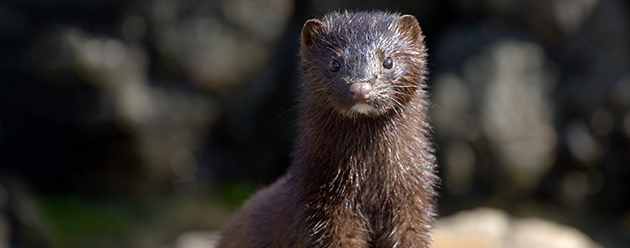
Zoetis’ Emerging Infectious Disease Capabilities Support COVID-19 Solutions for Great Apes and Minks
January 29, 2021
Initial work on a vaccine that could be used in cats and dogs leads to emergency use in other species
Led by researchers and scientists in our Center for Transboundary and Emerging Diseases (CTED), Zoetis initiated development activities for a new vaccine last year based on initial concerns about SARS-CoV-2 in domestic animals. Recently, our R&D team responded to a request from the San Diego Zoo after COVID-19 infected the zoo’s Great Apes and has provided a supply of experimental SARS-CoV-2 vaccines for the zoo’s emergency use in its Great Ape population.
“We are proud to be able to assist the San Diego Zoo Global veterinary staff and the animals in their care with their recent COVID-19 concerns,” said Dr. Mahesh Kumar, senior vice president of global biologics at Zoetis. “It’s a great demonstration of how our CTED team can apply our capabilities to emerging infectious diseases, adapt quickly to shifting market needs, and play an important role in promoting public health by advancing animal care.”
The initial development work and studies for the vaccine, which Zoetis shared last fall at the 6th World One Health Congress virtual event, were completed on dogs and cats. In these preliminary studies, the vaccine has been demonstrated to be safe and have a reasonable expectation of efficacy.
The vaccine development work then shifted to minks last year as the incidence in that species escalated in Denmark and other countries and demonstrated a critical need. It’s not uncommon to adapt vaccines for experimental use in other species in cases like these, with the appropriate regulatory permits and at the request of veterinarians. With the mink infections receiving ongoing media attention, Zoetis scientists have had the opportunity to discuss our emerging infectious disease program and capabilities.
Dr. Mahesh Kumar recently was interviewed by a reporter from the New York Times about how Zoetis is working to provide a vaccine solution that can potentially be used in mink. “When we saw the first case of a dog getting infected in Hong Kong, we immediately put into action our normal procedures for developing an emerging infectious disease vaccine,” said Dr. Kumar. “We decided to prepare a vaccine for dogs and cats.” The article highlighted Zoetis’ strong capabilities in emerging infectious diseases, including Zoetis’ earlier vaccine work development for canine infectious respiratory disease.
In December, Science Magazine spoke with Dr. John Hardham, Research Director in Global Biologics and Director, Center for Transboundary and Emerging Diseases at Zoetis, about the potential need for a COVID-19 vaccine for animals. Dr. Hardham explained how Zoetis has developed a vaccine for SARS-CoV-2 in mink and has been in discussions with the USDA about a path for a conditional approval for use in the U.S.
As the world leader in animal health, Zoetis has a long history of developing solutions for emerging infectious diseases in animals, including quickly developing a diagnostic test that can be used to detect SARS-CoV-2 in animals. This test is being offered in our reference labs upon request and was used to identify cases in companion animals. While this test is available, the USDA and global veterinary organizations are not recommending broad testing of companion animals at this time.